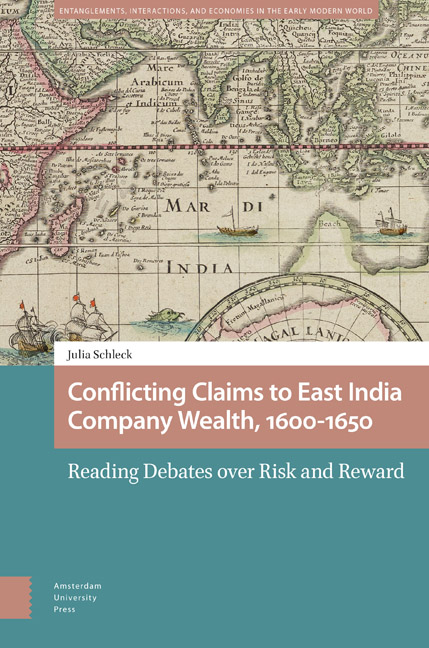Book contents
Conclusion: The Functions of Ignorance
Published online by Cambridge University Press: 16 April 2024
Summary
Abstract
The Conclusion to Conflicting Claims to East India Company Wealth examines the role that ignorance and its deliberate cultivation played in the early years of English trade to the East Indies, asking what must not be known for the trade, and our contemporary understanding of it, to proceed as it did. It focuses especially on the practice of overseas traders marrying into local families to forward their connections and personal financial prospects, questioning the gap between historical practice and literary representations of transcultural liaisons. It considers the ramifications of this elision of a widespread historical practice for the field of contemporary English literary criticism.
Keywords: East India Company, archival studies, history of ignorance, history of mixed marriage, British Empire, decolonizing universities
The advent of new long-distance trading ventures to the Mediterranean, the Americas, and particularly to the Indian Ocean brought an influx of wealth to England during the first fifty years of the seventeenth century and pushed the nation further from a feudal and towards a capitalist economy. As was the case in the older agriculturally based economic order, the wealth from the new trade would be unequally distributed across English society. But with the differing pattern of distribution came the necessity for new justifications for this inequality. Why should certain groups gain more than others? What relationship should such reward have to risk-taking (physical or financial), to knowledge, or to work? As the trading company producing the most spectacular short-term gains, the East India Company served as a magnet for these debates, particularly since the death rate matched the profit rate in reaching staggering levels unseen in prior trades or other types of labor. At the same time, the extreme distance at which these men worked from their masters provided opportunities for independent action not open to those laboring closer to home. This book has sought to trace the debates over the political economy of the East India Company as they arose in a variety of forums in early modern England, considering their articulation in the popular pamphlet literature, in Parliament, Whitehall, among members of the East India Company, and finally through the actions of Company's servants while abroad.
- Type
- Chapter
- Information
- Conflicting Claims to East India Company Wealth, 1600-1650Reading Debates over Risk and Reward, pp. 207 - 216Publisher: Amsterdam University PressPrint publication year: 2024



